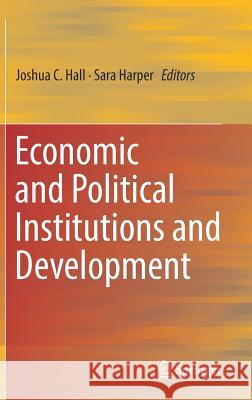Economic and Political Institutions and Development » książka
topmenu
Economic and Political Institutions and Development
ISBN-13: 9783030060480 / Angielski / Twarda / 2019 / 182 str.
Kategorie:
Kategorie BISAC:
Wydawca:
Springer
Język:
Angielski
ISBN-13:
9783030060480
Rok wydania:
2019
Wydanie:
2019
Ilość stron:
182
Waga:
0.46 kg
Wymiary:
23.5 x 15.5
Oprawa:
Twarda
Wolumenów:
01
Dodatkowe informacje:
Wydanie ilustrowane











